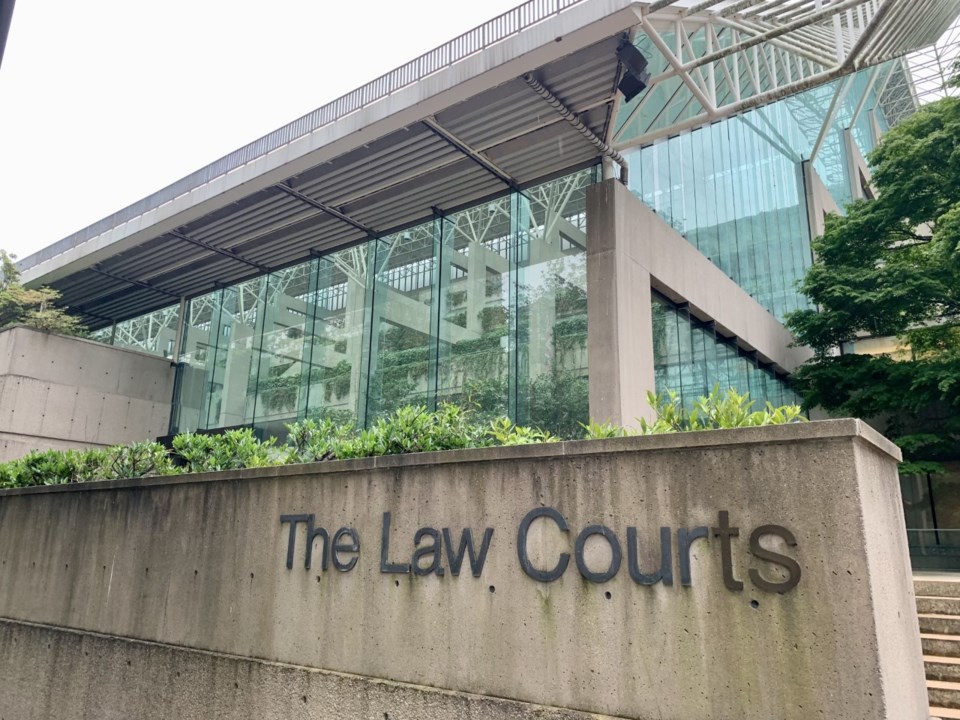The cross-examination of an RCMP lab technologist at a Burnaby murder trial revealed a glimpse into steps homicide investigators were taking to solve the case of a 13-year-old girl found dead in Central Park six years ago.
The defence began questioning RCMP National Forensic Laboratory technologist Jeremy Fenn at the trial of Ibrahim Ali Wednesday morning.
Ali is on trial in B.C. Supreme Court in Vancouver for first-degree murder in the death of the young teen, whose body was found in the forest on July 19, 2017.
He has pleaded not guilty.
The victim cannot be identified because of a publication ban.
During questions from Crown prosecutor Colleen Smith, Fenn had talked about 13 exhibits he had examined, including multiple internal swabs taken from the body of the girl, three of which revealed “frequent” sperm.
But during cross-examination by defence lawyer Kevin McCullough, it became clear Fenn had also examined other exhibits in the case.
On Sept. 6, 2017, for example, he said he had examined two different “penile swabs,” a discarded cigarette butt, a discarded plastic straw, a discarded wristband and 10 biological samples from known donors as well as two neck swabs taken from the 13-year-old girl.
No detail was provided about where the other exhibits came from or what happened to the samples.
When McCullough asked Fenn just how many exhibits he had examined in relation to the Burnaby homicide investigation, Smith objected on the basis of relevance.
McCullough did not repeat the question.
During his cross-examination, McCullough noted the Crown had asked “a ton of questions” about the lab’s measures to prevent cross-contamination, and he questioned Fenn about how the exhibits were stored and which exhibits he might have been working with at around the same time.
The Crown had also asked Fenn at length about the lab’s standard operating procedures and how the work of lab technologists such as Fenn is scrutinized.
After questions from McCullough, however, Fenn acknowledged the technologists’ paperwork is reviewed, but “we don’t have anyone looking over our shoulder.”
“We don’t want multiple people touching the exhibits,” Fenn said.
The Crown plans to call more witnesses from the RCMP lab to speak to DNA evidence, but the jury won’t hear from them until at least July 24 because of scheduling changes.
DNA evidence is crucial for the Crown’s case as there were no witnesses to the killing, according to the Crown.
The Crown’s theory is that Ali attacked the girl in Central Park, dragged her into the forest and strangled her while sexually assaulting her.
In her opening statement to the jury in April, Crown prosecutor Isobel Keeley said the court would hear DNA evidence that Ali’s sperm was found inside the girl and that “numerous witnesses will testify to their respective roles in the collection, continuity and testing of DNA-related exhibits.”
During cross-examination, however, the forensic pathologist who autopsied the young teen acknowledged last month he couldn’t say whether the injuries he found were caused by forced or consensual intercourse.
On Thursday, the Crown expects to call an RCMP officer who will give evidence about video of the victim's building.
The manager of the building is also expected to testify.
Follow Cornelia Naylor on Twitter @CorNaylor
Email [email protected]



